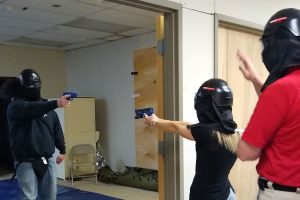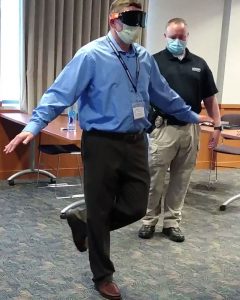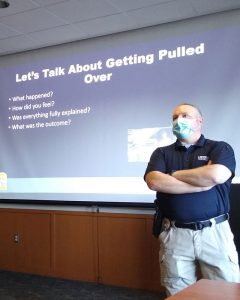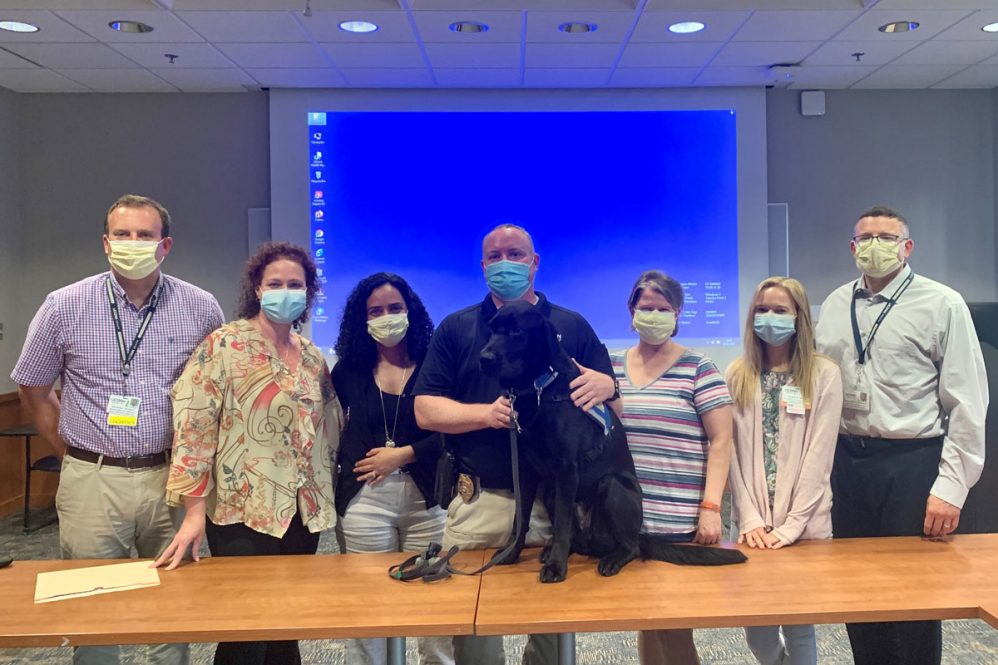
Later this spring, the UConn Police Department is offering its citizen’s police academy at UConn Health.
Members of the UConn Health community are invited to take part in this six-week program that will meet on campus Wednesday evenings from 5 to 7 p.m. starting May 18.
“It was interesting to learn about the community-based style of policing embraced by our UConn police force and how genuinely invested they are in this approach,” says Stephanie Rauch, biomedical science program coordinator in the UConn Health Graduate School, who took part in the citizen’s police academy pilot at UConn Health last year.
The idea behind it is promote a better understanding of police practices and the services UConn police provide, offering a glimpse into the police department and officers’ daily experiences.

“Our goal is to create an opportunity for personal interaction that builds trust and allows the community the chance to see policing through the lens of the officer,” says Deputy Chief Maggie Silver. “It will enable the officer to also understand citizens’ points of view in many aspects of policing. It is a mutual collaboration with the objective of enhancing police and community relations.”
Topics covered include officer training, patrol procedures, special unit operations, criminal investigations, evidentiary services, proactive policing efforts, and a use of force session, which includes an optional interactive firearms simulation.
“I was really happy to be able to see things explained from an officer’s point of view,” says pilot graduate Alexander Schwarz, assistant director of the Office of Logistics Management. “Situations unfold rapidly and it was eye-opening to understand what officers deal with on a daily basis.”
Among the instructors are officers and supervisors who patrol the campus.
“We are so very fortunate to have a police department on campus,” says pilot graduate Debra Abromaitis, title. “Learning more about what they do, how they do it, and hearing how much they truly care was so interesting.”

In addition to meeting several officers, attendees can expect to spend some time with Carson, a Lab-golden crossbreed trained as a support dog for crime victims and people with disabilities — and a favorite of the pilot class.
“It was wonderful to spend some quality time around with our campus’s own Officer Carson (and his human, our course instructor Officer JB O’Reilly),” Rauch says. “I think he is a fantastic addition to the community; one can’t help but be charmed by his sweet disposition and perhaps rethink one’s concept of what police and community interactions can be.”
The spring 2022 session is open to any members of the UConn Health community, on a first-come, first-serve basis. Those interested should email PDStartTeam@uconn.edu.



